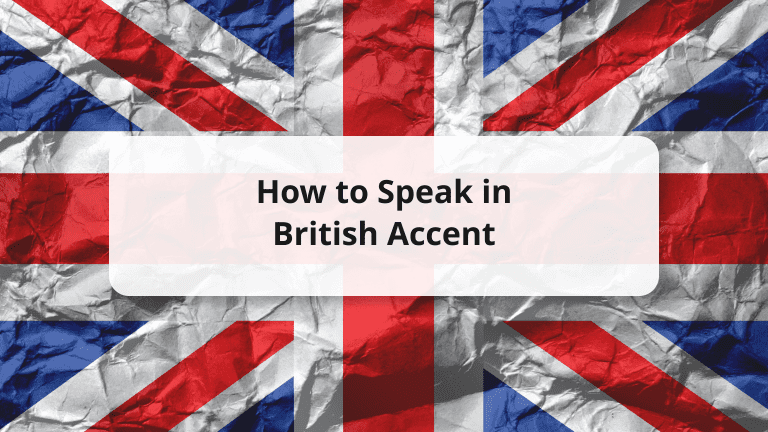How to speak British accent? If you fancy a cup of tea and some dreary weather, then you should start learning how to do a British accent right away. Many people living outside of the United Kingdom (UK) are aware that there are various accents across the board. That being said, there are many variations in British accents that many people may not know about.
Why should you learn a British accent? Well for starters learning the accent will help you when starting your journey on how to learn English speaking, especially if your native accent is vastly different from an English one. Secondly, improving your accent will make conversational English that much easier to learn and understand for people unfamiliar with your native accent.
So without further adieu, this article will give you the know-how on learning the accent and all the tips and tricks to help master it in a jiffy. Let’s go!
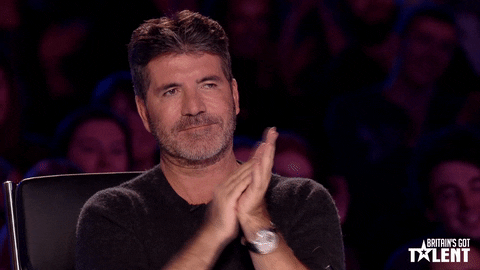
Table of Contents
ToggleWhat is the most common British accent?
The Famous “RP”
Not everybody speaks with a British accent like Emma Watson, Benedict Cumberbatch, or Keira Knightley. But that doesn’t mean you can’t learn how to.
When non-British people talk about “a British accent”, they are usually referring to an accent called Received Pronunciation (RP) although it can also be referred to as “the Queen’s English,” “BBC Pronunciation” or “Standard British English”.
What people commonly describe as a “British accent” usually means this accent. However RP is less common in the UK than you might think, depending on where you are in the UK, it’s often considered “posh”! And predominantly spoken by upper and middle-class people living in North London and other Southern regions.
Although we are focusing on Received Pronunciation there are dozens of unique dialects and accents in London alone.
British Accents: Not Just RP
The most well-known by nonnatives in the greater UK area would be Scottish English and Welsh English.
While going back to England we have Cockney (a strong dialect spoken in various parts of England that likely originated in East London) and Midlands English (an accent primarily spoken in Birmingham – usually separated into East and West Midlands English) are very recognizable to non-native speakers.
This might be overwhelming to process but not to worry, below is a helpful map that will help you to visualize the various accents using pop culture as an easy way to remember how each one sounds.
Distribution of British Accents
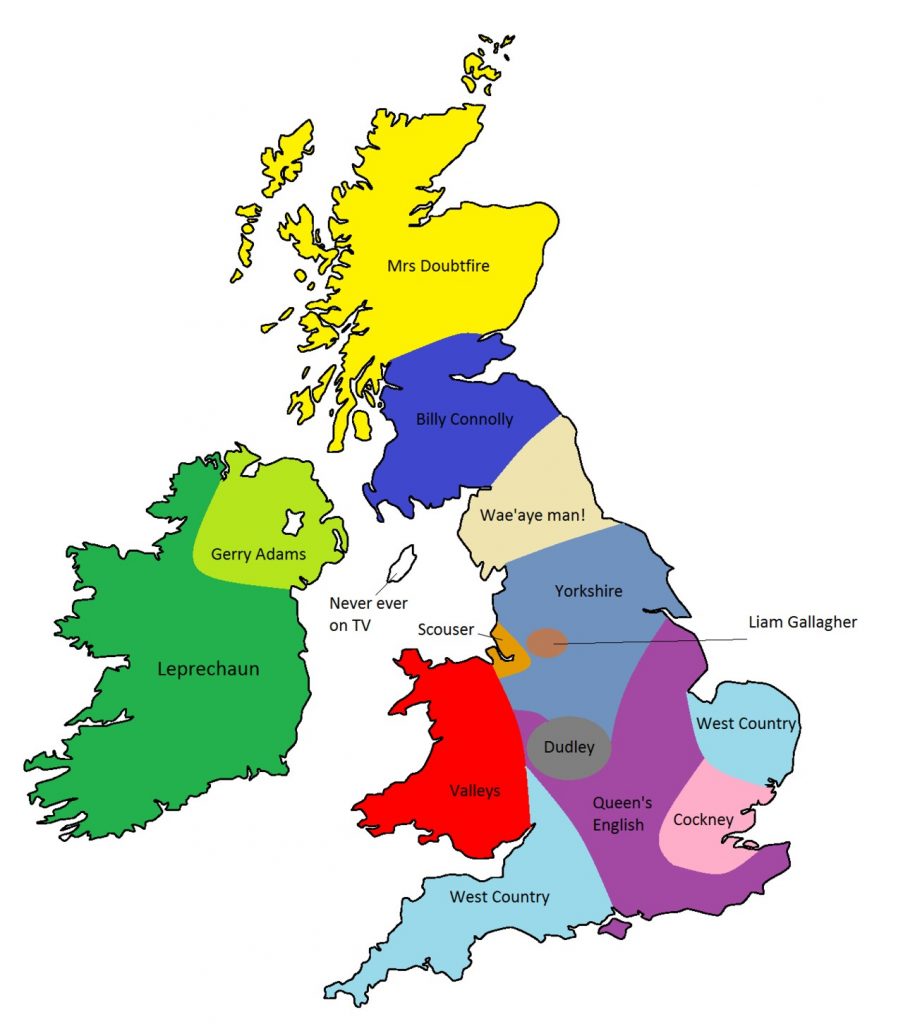
Scotland and the North
- Mrs Doubtfire: Played by Robin Williams in the titular movie. The accent was a very Scottish accent typified by an affluent neighbourhood.
- Billy Connolly: The Glasgow-born comic is known for his Scottish working class accent.
- Wae’aye man!: Meaning “strong yes!” Geordie is one of the trickiest accents for outsiders. It has a sing-song rhythm and mixture of dialect words, all said at high speed.
- Yorkshire: This accent contains some of the most obvious traces of Old English. Unlike RP accents the pronunciation of vowels is much shorter.
- Liam Gallagher: Lead singer of mega-band Oasis. This accent tends to use an over-enunciation of all vowel sounds.
- Scouser: This accent is confined to a relatively small area that is Liverpool. It has quite a few nasal sounds, to the extent that the consonant T is pronounced more like the letter R.
Wales and Midland
- Dudley: This accent has some unique words and some very old constructs that is related to Olde English.
- Valleys: This Welsh accent is often the butt of jokes to other English speakers. The vowel sounds are stretched out and stressed.
Southern England and Ireland
- West Country: The West Country accent is considered wholesome and rich, but because of its links to the farming industry it’s not considered a particularly intelligent accent.
- Queens English: This accent we are focusing on is described as the “posh” accent that the Queen uses – as well as grammatically correct utterances free of slang.
- Cockney: This accent is traditionally spoken by working-class Londoners. However this accent has had a derogatory connotation.
- Gerry Adams: Referring to the Irish republican politician. The Northern Irish accent has a very tight, rigid mouth, this makes the sound shorter and less round than most other UK accents.
- Leprechaun: A euphemism for the typical Irish accent. it uses softened vowels, hardened consonants, and is Spoken quickly but clearly.
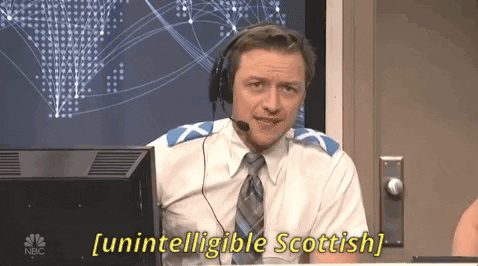
Tips on How to do a British Accent: British Pronunciation Guide
To put you in the best position to make the sounds correctly it’s important to understand that every accent or dialect has its own unique placement of the jaw, tongue, lips, and mouth. You can alter your own default placement and acquire that of another dialect. You won’t stand out too badly even if you slightly miss the signature sound of that accent. Practicing these positions will also put you in the best position to make the sounds correctly.
Let’s look at some tips and tricks to help you nail the placement and position to optimize your practice:
1. Drop your jaw
You’ll need to drop your jaw about twice as much as you realize if your current accent is not similar to a British accent. This is the foundation. If you have tension in your jaws try incorporating some exercises that ease jaw tightness into your dialect practice routine.
2. Bring the corners of your lips forward
Much like the first tip this technique will feel strange. The British accent tends to be narrower and longer, as opposed to other accents that tend to be wider and shallower. This is reflected in the shapes your mouth makes in each accent.
If you’re unsure how to do this in the most basic sense, the shape you need to make for this sound is almost like a kissing face. This will help in the pronunciation of the “aw” sound such as in the words saw, draw, more, and floor.
3. Remove the Rs
This one might be confusing but bare with us. In most British accents the “r” sound is taken out of words and replaced with an “ah,” “eh” or “uh” sound. This is dependent on the vowel that precedes the “r.” The rule only applies at the end of words or syllables when the next word or syllable begins with a consonant. An example of this would be, the “r” in hardly would be replaced with “ah” so it would be pronounced “hah-dly,” whereas the “r” in Harry would be pronounced “Ha-ry.”
However, it is pronounced If the “r” sound is at the end of a word or syllable which is followed by one that begins with a vowel and is used as a link between words. The words almost blend into each other. An example of this would be: “Where are you?” which should be said “wheh-rah-you?”
4. There’s nothing “ew” about “u”
If you’re learning how to speak British the sound “u” should be pronounced as “ew” as opposed to the “oo” sound. Think of how the word “you” is said. An example of words that utilise this rule is stupid which should be pronounced “stew-pid” rather than “stoo-pid” and duty which should be pronounced “dew-ty” instead of “doo-ty.”
5. Consonants need your attention
consonants should be pronounced a little more than you think. However, don’t take this too far as hitting consonants too hard makes an accent sound fake. This rule particularly applies to “t” sounds. The word battle should be said “bat-ul” rather than “ba-dul” for example. The “g” in the suffix “-ing,” also applies to this rule and should be pronounced like the ”t” but with a bit more subtlety.
6. “A” versus “Ah.”
Unfortunately, this important sound change is particularly inconsistent whether it’s pronounced as a standard “a” sound or a darker “ah” sound which comes naturally from the dropping of the jaw. However, since we are focusing on the RP accent it is more common to pronounce it as a darker “ah” sound.
The examples and their respective audio clips below will help you consolidate these tips as well as allow you to practice alongside an audible aid.

R
- Rip
- Crash
- Sorry
- I’m worried about tomorrow.
T
- Better
- Whatever
- Together
- Did you turn the tap off?
A
- Apartment
- Path
- Car
- Can you run a warm bath for me?
U
- Enthusiasm
- Choose
- Student
- Have you heard this new tune?
Heavy consonants
- Batch
- Thirst
- Mold
- These chips are a bang for your buck.
How to Speak British accent?
Learn British slang
We can all agree that British slang is in a class of its own. The British language involves a unique vocabulary and using them will help your accent sound authentic. Below is a list of some common British slang and their meanings:
- Bloke – Slang for an adult man. Sounds quite colloquial and jokey. It’s common to describe a nice guy as “a good bloke.”
- Cheeky – An adjective describing behavior that is slightly rude, albeit in a humorous or cute way.
- Cheers – A friendly way to say “thank you.” Like “thanks!” it can also be used as an exclamation of gratitude, on its own “cheers!” The word has two meanings and is used when people suggest raising their drinks in a toast.
- Knackered – “Knackered” is a synonym for “exhausted.” It is not considered a rude thing to say, just a little informal.
- Fancy – In a slang context, “fancy” is a verb, which means “to have a crush on” or “to find romantically attractive.”
- Alright? – This word is common British slang for the word hello. It is also used as a form of common greeting in the UK.
- Gutted – “Gutted” means very disappointed. So disappointed that you feel the misery in your guts!
- Fit – “Fit” is an informal, slightly crude term for someone you find physically attractive.
- Cuppa – This word is short for “a cup of tea.”
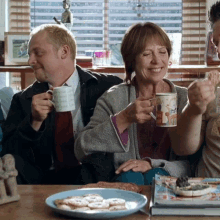
Listen to the radio
You’ve probably heard about them before, BBC which is an abbreviation for ‘British Broadcasting Corporation’, is a monolith of British media. It is a British public service broadcaster. Its main responsibility is to provide impartial public service broadcasting in the UK.
Their radio service allows you to listen to native accents in real time but most importantly they offer to learn programs completely free!
The learning material on the BBC ranging from easy to hard include:
Watch British TV
The US dominates the English-language media and entertainment industry which means the North American accent is now dominant among ESL speakers. And while British characters in North American films are frequently played by American actors, their English accents tend to be grossly inaccurate. Luckily thanks to the BBC there are a plethora of TV shows at your disposal.
Some highly successful TV shows for example:
- Doctor Who — a science-fiction program about a person who can travel through time in a phone booth.
- Fleabag — a dark, feminist comedy about a single woman living in London. Warning though this show is explicit.
- Sherlock — a high-budget, contemporary remaking of some of the most famous detective stories in the English-speaking world.
- Blue Planet — a series of highly cinematic nature documentaries about the ocean.
- The Great British Bake-off — a soothing reality TV show where bakers compete to make the best cakes in the country.
Get a local tutor
There’s just no substitute for a native speaker’s guidance! If you are really serious about learning to speak British English, Finding a tutor who is a native British English speaker is a secure way to make it happen. They’ll be able to tell you which sounds you’re pronouncing perfectly while also helping you identify areas that need work. If you’re struggling to express what you want to say, your tutor will be able to suggest British words and expressions help you achieve that.
British Accent vs. American Accent: Differences
The British accent and the American accent have stark contrasts. The most obvious difference is that American speakers talk slowly and much more monotonously while British accents are much more expressive as they lengthen the vowels.
We’ve touched on The pronunciation of the letter ‘R’ before so let’s discuss the differences. In American English, the “r” is pronounced at the end of the syllable, for example in the word art, whereas in RP the ‘r’ must not be pronounced, and the vowel before it must be emphasized more. For example, American English would pronounce “car” with a hard “r” at the end whereas British people be like “caa”.
The pronunciation of the letter “T” is the opposite of the letter ‘r’. The British pronounce the letter ‘T’ clearly at the end of each word. While Americans usually turn this type of ´t´ into an ‘r’.
Below is a comparison of common words in a British accent and an American accent:
Herb
- British
- American
Garage
- British
- American
Advertisement
- British
- American
Basil
- British
- American
Vitamin
- British:
- American
FAQs
RP or “Southern Standard British English” and while it may seem like one accent, there are in fact different versions of RP that correspond to different social categories. The three main types include: Conservative RP which is generally associated with older generations and the aristocracy, younger upper-middle-class speakers generally use Contemporary RP, and the most common version heard today, for example, by many presenters on the BBC is referred to as Mainstream RP.
The easiest way to improve your accent is to simply listen to how people speak. Watch how their mouth moves and pay attention to the sounds they make when they talk. Try a technique known as shadowing. Say the words out loud after you hear them and see how close you can mimic the accent. Listen to Your Voice by recording yourself talking in English, this will reveal areas in which you need to improve by revealing areas in which you need to improve by listening back to it.
Now You Know How to Do a British Accent, Bob’s Your Uncle
Cheers mate! You should be chuffed with yourself. Learning a British accent is easier than you think. By employing techniques to your jaw, mouth, tongue, and lips while also emulating words from native speakers you can confidently learn how to speak in a British accent.
If you’re looking to take advanced English classes, having an accurate accent will make it all the easier. If you’re feeling nervous or shy, getting a private tutor is the best way for you to improve quickly and accurately.
AmazingTalker has +7000 tutors at your disposal ready to personalize lessons to fit your needs. With over 2 million students, it’s a no-brainer.
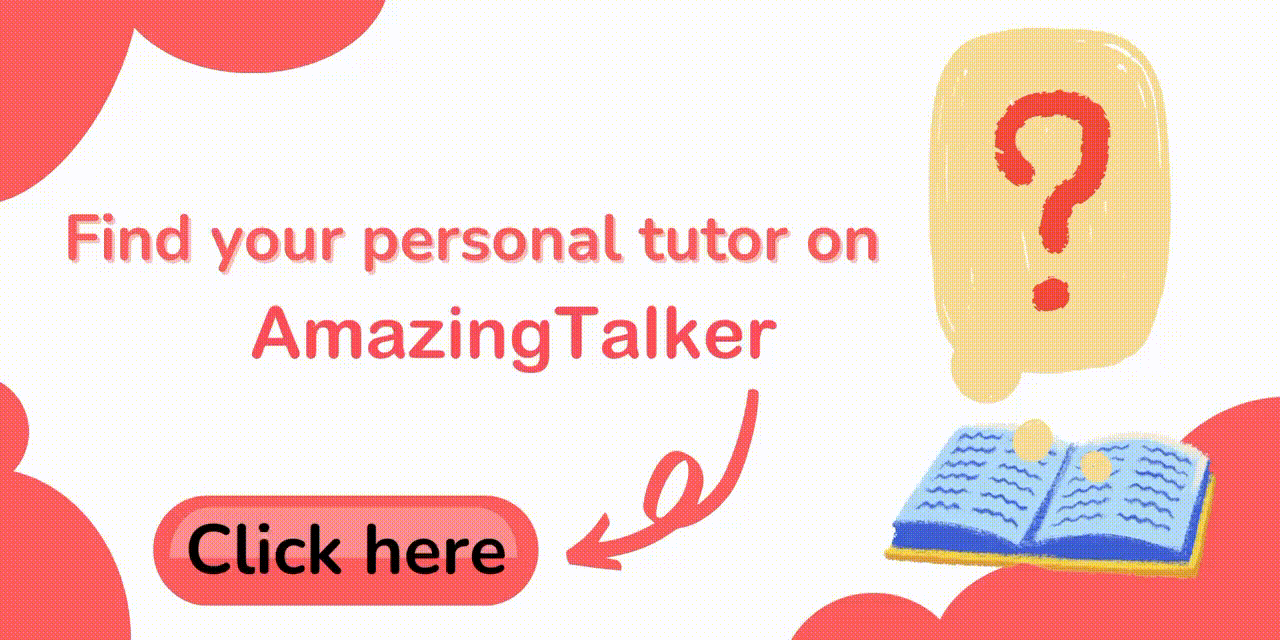
Read our newest posts:
Explore English Tutors by State
Finding the right English tutor often depends on where you live. To make your search easier, we’ve organized direct links to tutors available across the United States. Simply expand the list below and choose your state:
👉 View all English tutors by state
- English tutors in California
- English tutors in Texas
- English tutors in New York
- English tutors in Florida
- English tutors in Illinois
- English tutors in Georgia
- English tutors in Pennsylvania
- English tutors in North Carolina
- English tutors in Ohio
- English tutors in New Jersey
- English tutors in Washington
- English tutors in Virginia
- English tutors in Michigan
- English tutors in Arizona
- English tutors in Massachusetts
- English tutors in Tennessee
- English tutors in Indiana
- English tutors in Colorado
- English tutors in Maryland
- English tutors in Minnesota
- English tutors in Missouri
- English tutors in Wisconsin
- English tutors in South Carolina
- English tutors in Connecticut
- English tutors in Louisiana
- English tutors in Nevada
- English tutors in Oregon
- English tutors in Alabama
- English tutors in Oklahoma
- English tutors in Kentucky
- English tutors in Iowa
- English tutors in Utah
- English tutors in Arkansas
- English tutors in Mississippi
- English tutors in New Mexico
- English tutors in Rhode Island
- English tutors in Delaware
- English tutors in Kansas
- English tutors in Nebraska
- English tutors in Hawaii
- English tutors in West Virginia
- English tutors in New Hampshire
- English tutors in Maine
- English tutors in Montana
- English tutors in North Dakota
- English tutors in South Dakota
- English tutors in Vermont
- English tutors in Idaho
- English tutors in Alaska
- English tutors in Wyoming
- English tutors in District of Columbia
Find English Classes Near You
Prefer taking structured classes instead of private tutoring? We’ve got you covered. Browse through our collection of English classes by state. Expand the menu below to discover options near you:
👉 View all English classes near you
- English classes near me in California
- English classes near me in Texas
- English classes near me in New York
- English classes near me in Florida
- English classes near me in Illinois
- English classes near me in Georgia
- English classes near me in Pennsylvania
- English classes near me in North Carolina
- English classes near me in Ohio
- English classes near me in New Jersey
- English classes near me in Washington
- English classes near me in Virginia
- English classes near me in Michigan
- English classes near me in Arizona
- English classes near me in Massachusetts
- English classes near me in Tennessee
- English classes near me in Indiana
- English classes near me in Colorado
- English classes near me in Maryland
- English classes near me in Minnesota
- English classes near me in Missouri
- English classes near me in Wisconsin
- English classes near me in South Carolina
- English classes near me in Connecticut
- English classes near me in Louisiana
- English classes near me in Nevada
- English classes near me in Oregon
- English classes near me in Alabama
- English classes near me in Oklahoma
- English classes near me in Kentucky
- English classes near me in Iowa
- English classes near me in Utah
- English classes near me in Arkansas
- English classes near me in Mississippi
- English classes near me in New Mexico
- English classes near me in Rhode Island
- English classes near me in Delaware
- English classes near me in Kansas
- English classes near me in Nebraska
- English classes near me in Hawaii
- English classes near me in West Virginia
- English classes near me in New Hampshire
- English classes near me in Maine
- English classes near me in Montana
- English classes near me in North Dakota
- English classes near me in South Dakota
- English classes near me in Vermont
- English classes near me in Idaho
- English classes near me in Alaska
- English classes near me in Wyoming
- English classes near me in District of Columbia
